The goal is not for us to get through the Scriptures. The goal is to get the Scriptures through us.
JOHN ORTBERGRelated Topics
Anand Thakur



The goal is not for us to get through the Scriptures. The goal is to get the Scriptures through us.
JOHN ORTBERG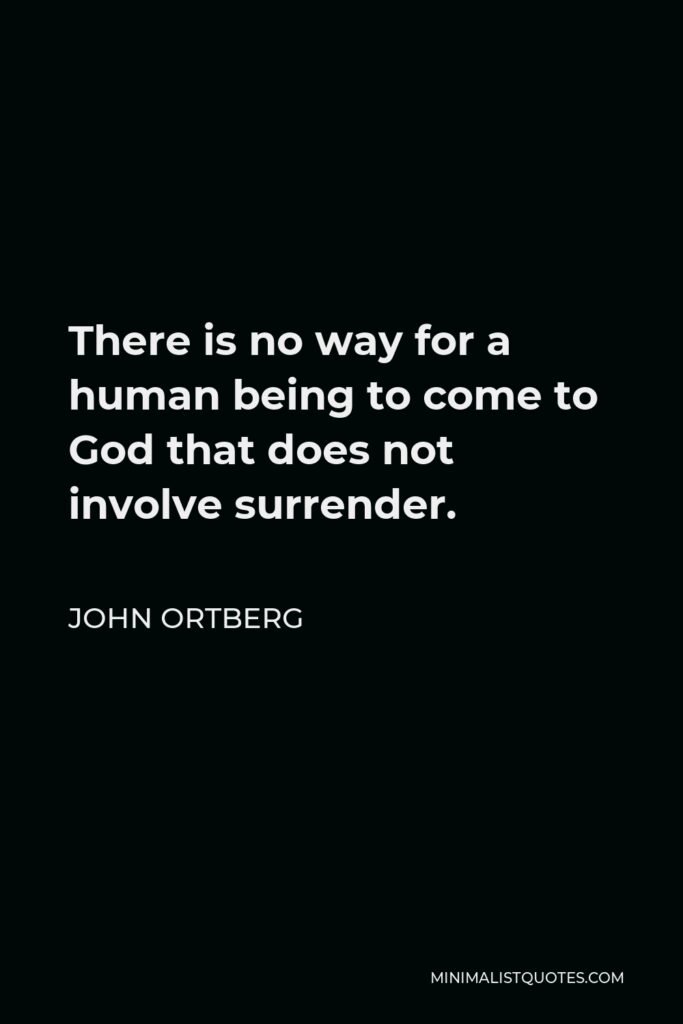

There is no way for a human being to come to God that does not involve surrender.
JOHN ORTBERG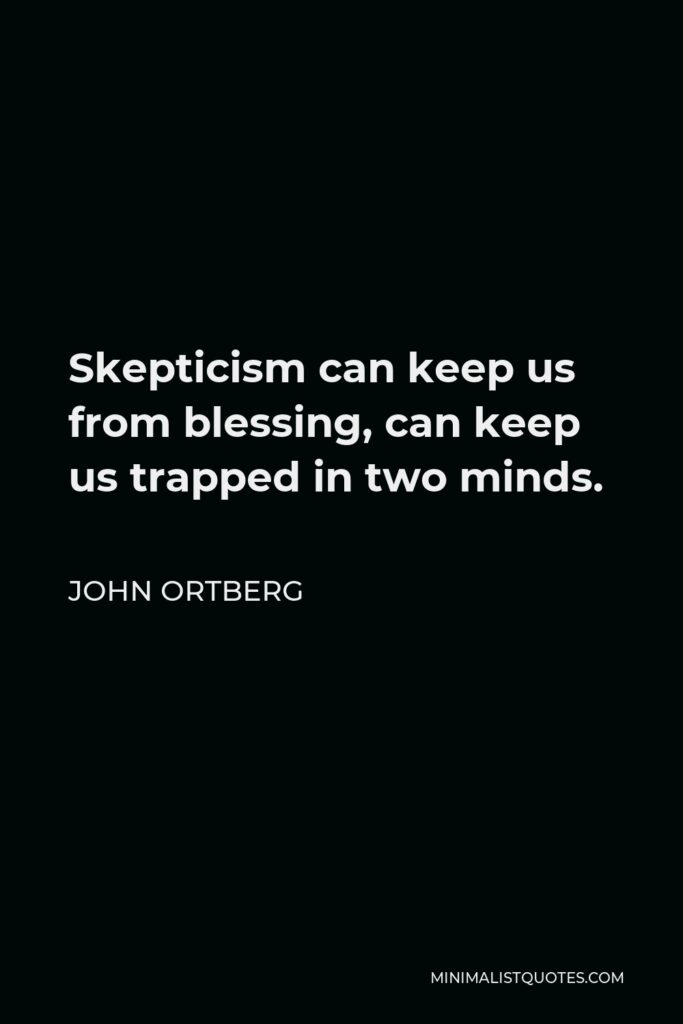

Skepticism can keep us from blessing, can keep us trapped in two minds.
JOHN ORTBERG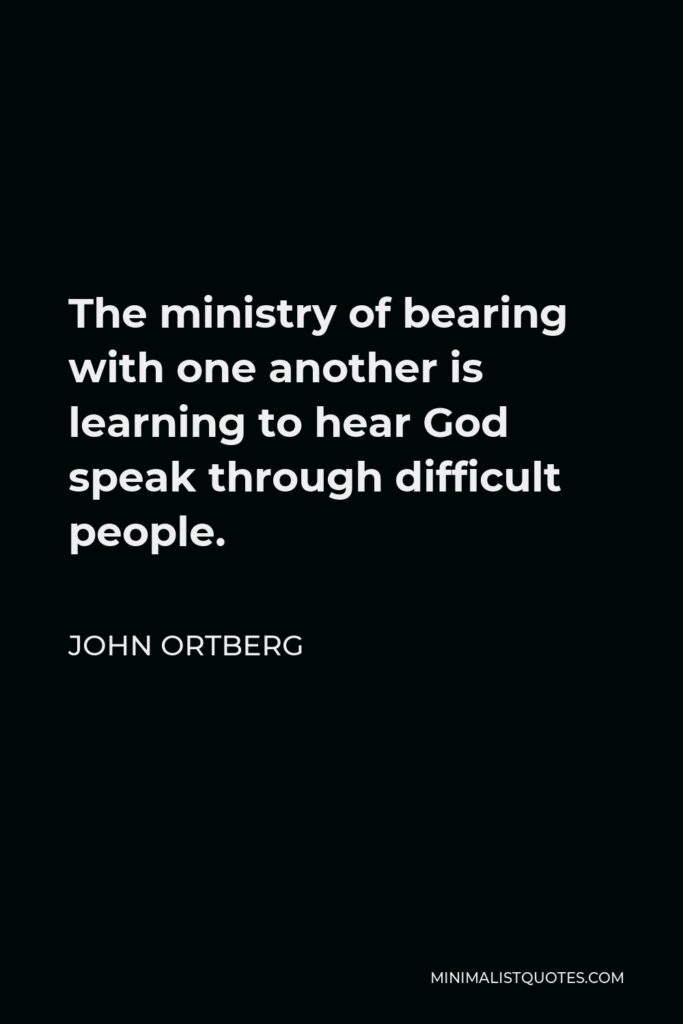

The ministry of bearing with one another is learning to hear God speak through difficult people.
JOHN ORTBERG

Love and hurry are fundamentally incompatible. Love always takes time, and time is the one thing hurried people don’t have.
JOHN ORTBERG

The most frequent promise in the Bible is ‘I will be with you.’
JOHN ORTBERG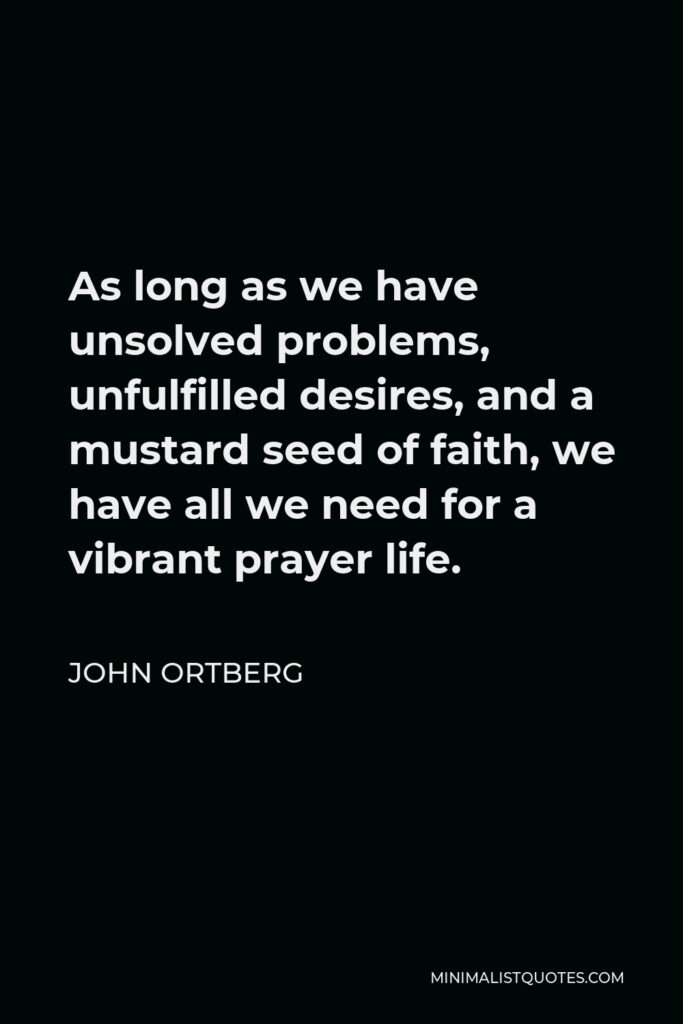

As long as we have unsolved problems, unfulfilled desires, and a mustard seed of faith, we have all we need for a vibrant prayer life.
JOHN ORTBERG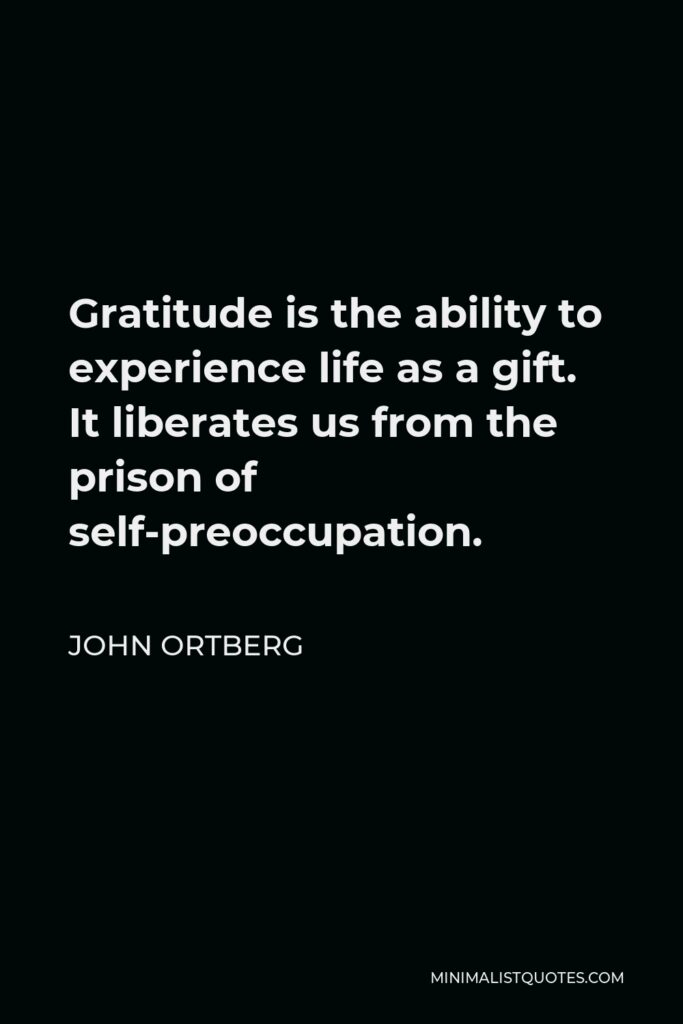

Gratitude is the ability to experience life as a gift. It liberates us from the prison of self-preoccupation.
JOHN ORTBERG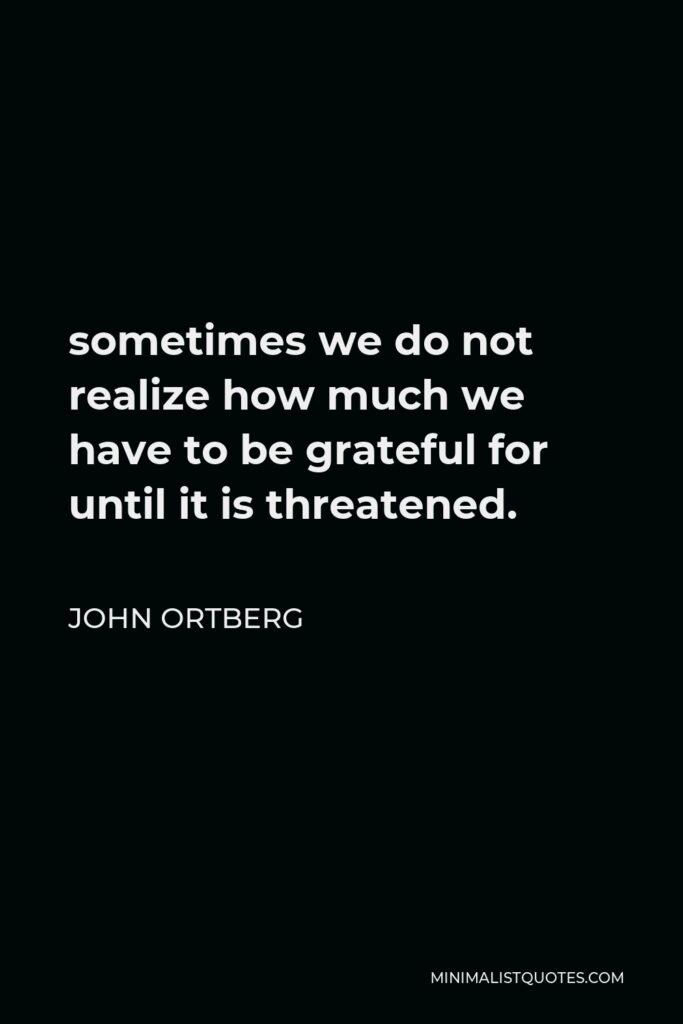

sometimes we do not realize how much we have to be grateful for until it is threatened.
JOHN ORTBERG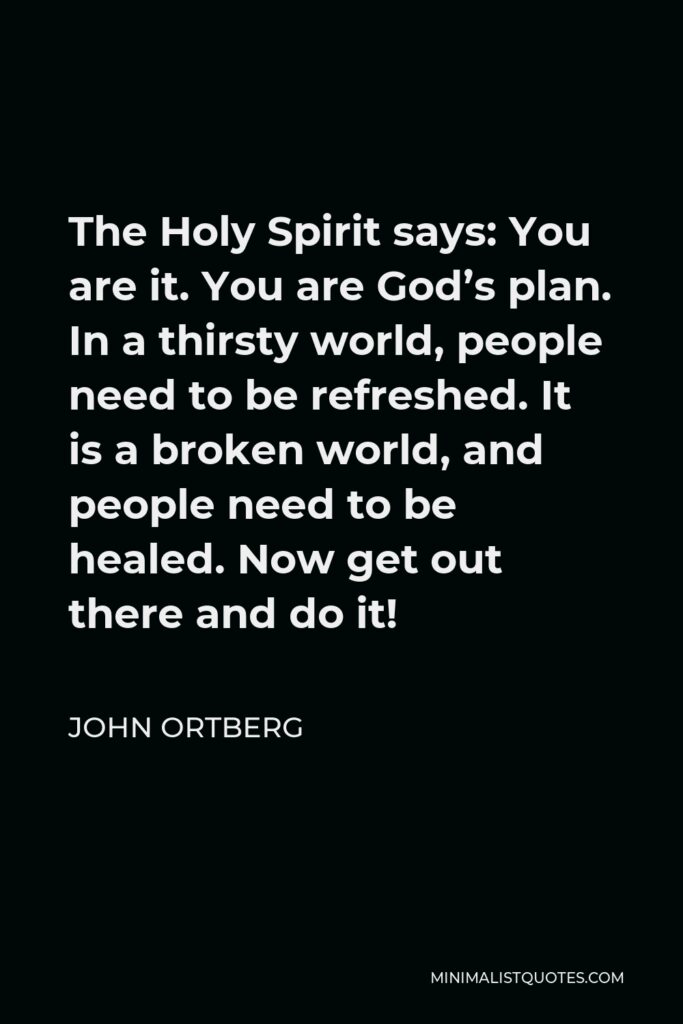

The Holy Spirit says: You are it. You are God’s plan. In a thirsty world, people need to be refreshed. It is a broken world, and people need to be healed. Now get out there and do it!
JOHN ORTBERG

We’d like to be humble…but what if no one notices?
JOHN ORTBERG

True love is willing to warn, reprove, confront or admonish when necessary.
JOHN ORTBERG

Art is built on the deepest themes of human meaning: good and evil, beauty and ugliness, life and death, love and hate. No other story has incarnated those themes more than the story of Jesus.
JOHN ORTBERG

God is a God of endless opportunities to do good; the God of the open door.
JOHN ORTBERG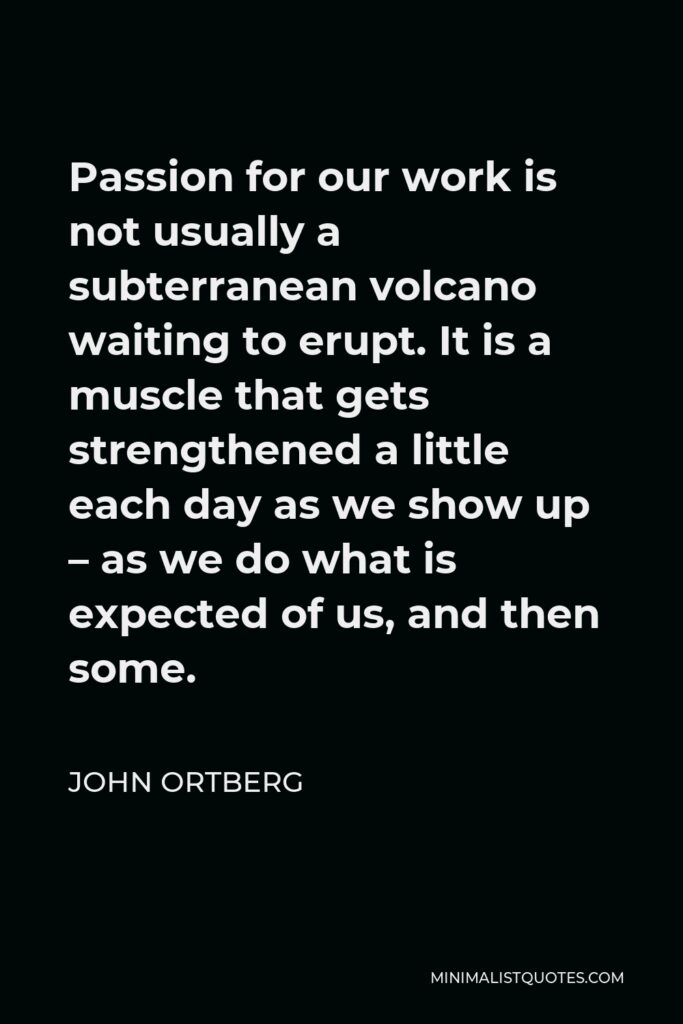

Passion for our work is not usually a subterranean volcano waiting to erupt. It is a muscle that gets strengthened a little each day as we show up – as we do what is expected of us, and then some.
JOHN ORTBERG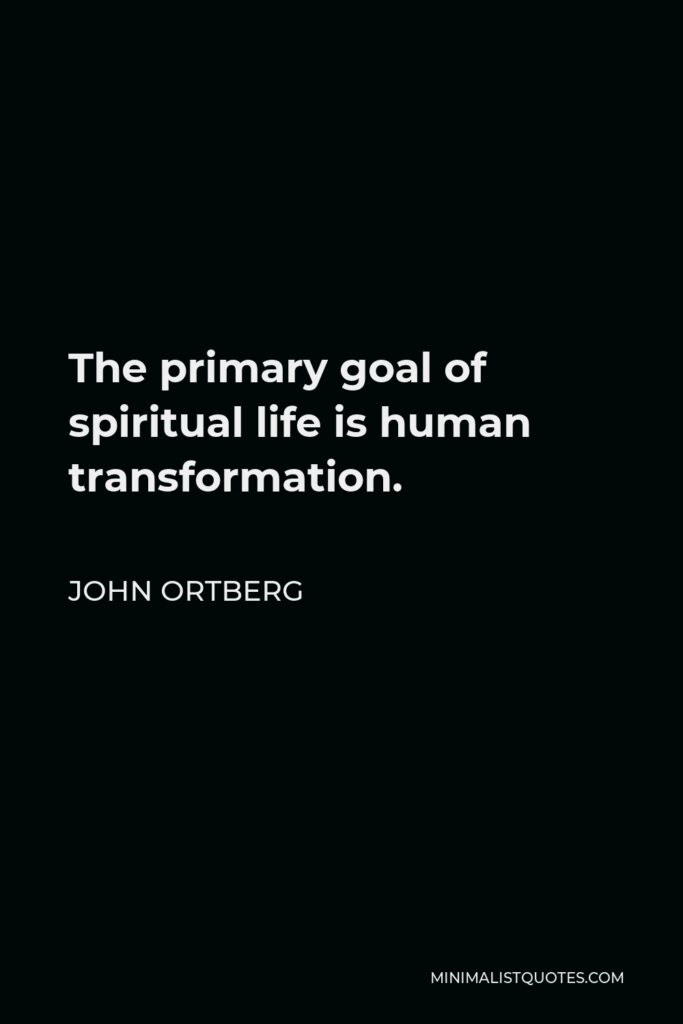

The primary goal of spiritual life is human transformation.
JOHN ORTBERG